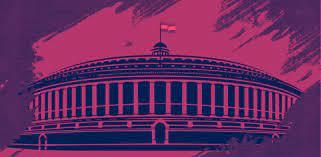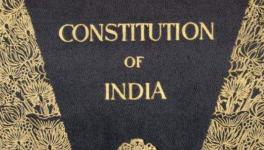Our inbuilt Parliamentary mechanisms, as well as minor modifications and adjustments to the same, can help to revitalise Private Members’ Bills.
—–
Recently, a few Private Members’ Bills (‘PMBs’) stirred a debate in the industry circle and among academics on two fronts: a) the subjects that they dealt with, and b) the purpose and authority of a PMB. Often, the subjects of PMBs are derived from academic debates, whether it is on the issue of Uniform Civil Code, employees’ right to ignore office calls after working hours, death penalty abolition or unemployment allowance. The PMB can also be used to drive a political issue. For instance, the PMB last year to amend the Preamble to the Constitution to replace the term ‘socialist’ in the Preamble with ‘equitable’, and the PMB to remove temples from government control in 2019.
In India’s Parliamentary history of more than 70 years, there have been only 14 PMBs that have been passed as legislation. The first PMB to be passed was in 1954 – the Muslim Wakfs Act, 1954, and the last such PMB was more than 50 years ago – the Supreme Court (Enlargement of Criminal Appellate Jurisdiction) Act, 1970 (See Table 1 for more). Yet, it is a necessity which cannot be dispensed with in our democratic setup.
In India’s Parliamentary history of more than 70 years, there have been only 14 PMBs that have been passed as legislation.
PMBs are introduced by those Members of Parliament (‘MPs’) who are not ministers. The majority of the MPs are not ministers, and they represent the majority of the country through their respective constituencies. Thus, having this legislative tool to represent the needs of their people, which might not be represented in the government bills, is essential to furthering the cause of the democratic process and representation.
Table 1
| Name of the Bill | Member introducing | Year of passing |
| 1. The Muslim Wakfs Bill, 1952 | Syed Mohammed Ahmed Kazmi (LS) | 1954 |
| 2. The Code of Criminal Procedure (Amendment) Bill, 1953 | Raghunath Singh (LS) | 1956 |
| 3. The Indian Registration (Amendment) Bill, 1955 | S.C. Samanta (LS) | 1956 |
| 4. The Proceedings of Legislature (Protection of Publication) Bill, 1956 | Feroze Gandhi (LS) | 1956 |
| 5. The Women’s and Children’s Institutions (Licensing) Bill, 1954 | Rajmata Kamlendu Mati Shah (LS) | 1956 |
| 6. The Ancient and Historical Monuments and Archeological Sites and Remains (Declaration of National Importance) Bill, 1954 | Raghubir Singh (RS) | 1956 |
| 7. The Hindu Marriage (Amendment) Bill, 1956 | Seeta Parmanand (RS) | 1956 |
| 8. The Code of Criminal Procedure (Amendment) Bill, 1957 | Subhadra Joshi (LS) | 1960 |
| 9. The Orphanages and Other Charitable Homes (Supervision and Control) Bill, 1960 | Kailash Bihari Lall (RS) | 1960 |
| 10. The Marine Insurance Bill, 1959 | M.P. Bhargava (RS) | 1963 |
| 11. The Hindu Marriage (Amendment) Bill, 1962 | Diwan Chand Sharma (LS) | 1964 |
| 12. The Salaries and Allowances of Members of Parliament (Amendment) Bill, 1964 | Raghunath Singh (LS) | 1964 |
| 13. The Indian Penal Code (Amendment) Bill, 1967 | Diwan Chaman Lall (RS) | 1969 |
| 14. The Supreme Court (Enlargement of Criminal Appellate Jurisdiction) Bill, 1968 | Anand Narain Mullah (LS) | 1970 |
LS: Lok Sabha; RS: Rajya Sabha
Source: LS/RS website
I shall argue that the current sorry state of PMBs and the discussion over them needs an urgent revival, which can be achieved using our inbuilt Parliamentary mechanisms, as well as minor modifications and adjustments to the same.
Also read: Private Member’s Bill to amend the Preamble to the Constitution: An Explainer
Increasing the deliberation period
In the current Lok Sabha (2019-24) out of eight sessions, private business was only conducted in four. However, the percentage of time used on PMBs was miniscule (between one and two per cent). This was the lowest among all prominent parliamentary interventions like Zero hour, short duration discussion, and Rule 377, among others. Similarly, in the Rajya Sabha, for the last eight sessions analysed in the Table 3, three sessions didn’t have any private member business.
MPs usually leave for their respective constituencies before the second half of the Friday, further hampering the conduct of private business. MPs have demanded that the discussion should be shifted to Wednesday to encourage more discussion on private business.
In contrast to the Lok Sabha, the Rajya Sabha has devoted more time in terms of percentage on PMBs. For instance, the 255th session devoted almost 5.2 per cent of its total time on PMBs, wherein a major part of the time was devoted to discuss a PMB called the Companies (Amendment) Bill, 2019.
Table 2
| Sessions | Number of sittings | Private member business days | Percentage of the total time taken |
| First (Monsoon’19) | 37 | 02 | 1.46% |
| Second (Winter’19) | 20 | 01 | 1.84% |
| Third (Budget’20) | 23 | 02 | 0 |
| Fourth (Monsoon’20)* | 10 | 00 | 0 |
| Fifth (Budget’21) | 24 | 02 | 0 |
| Sixth (Monsoon’21) | 17 | 02 | 0 |
| Seventh (Winter’21) | 18 | 01 | 2.40% |
| Eighth (Budget’22) | 27 | 02 | NA |
Source: Lok Sabha Website
*Monsoon’20 was delayed and Winter’20 session was cancelled because of COVID-19
Table 3
| Session | Total time of sitting of the house (hrs:mins) | Percentage of the time taken for the private member business |
| 256 | 127:34 | 3.68% |
| 255 | 45:35 | 5.19% |
| 254 | 28:35 | 0 |
| 253 | 104:26 | 0 |
| 252 | 39:28 | 0 |
| 251 | 91:19 | 3.86% |
| 250 | 107:05 | 4.51% |
| 249 | 195:34 | 3.65% |
Source: Rajya Sabha website (Resume of work)
Apart from lack of government interest in conducting private member business, the day of private member business also plays an important factor in such low numbers. According to Rule 26(1) of the Rules of Procedure and Conduct of Business in Lok Sabha, the last two and a half hours on Friday are allotted for private members’ business. The proviso to Rule 26 does give authority to the Speaker to allot this time on any other day if the House doesn’t sit on Friday (the proviso to Rule 24 of the Rules of Procedure and Conduct of Business in the Council of States (Rajya Sabha) has a similar clause). However, it is hardly invoked if the private business doesn’t happen on Friday.
MPs usually leave for their respective constituencies before the second half of the Friday, further hampering the conduct of private business. MPs have demanded that the discussion should be shifted to Wednesday to encourage more discussion on private business. In Canada, private business is done four times a week under normal circumstances. In New Zealand, the second Wednesday is allotted for private business.
Loss of Fridays to any other business can also be rectified by an increase in the number of Fridays allotted for private business. For instance, the United Kingdom Parliament has increased Fridays for private business vide law and resolutions on a few occasions.
Also read: India’s descent to a presidential State and the birth of ‘parliamentary dictatorship’
Committees’ participation
The involvement of committees can be at two fronts: a) the Committee on Private Members’ Bills and Resolutions, and b) Department-related committees/select committees. Rule 293 of the Lok Sabha Rules provides for a Committee on Private Members’ bills and Resolutions. The function of the committee includes analysis of all PMBs seeking to amend the Constitution, prescribing time for discussion of each stage of a PMB, and to check the legislative competence of the PMB, among other things.
The data available on the website of the Lok Sabha reveals that the committee was last constituted for the year 2017-18 in the 16th Lok Sabha, and hasn’t existed since. The committee, which is constituted for the tenure of one year, is not in existence at present. This has only jeopardised the analysis of PMBs. The absence of this committee has led to private business time becoming just an introduction of a few hundred bills in a short span of time, leaving the discretion for private business on the Speaker and the government. For instance, in the seventh session of the current Lok Sabha, 145 PMBs were introduced in 101 minutes.
The absence of the Committee on Private Members’ Bills and Resolutions has led to private business time becoming just an introduction of a few hundred bills in a short span of time, leaving the discretion for private business on the Speaker and the government. For instance, in the seventh session of the current Lok Sabha, 145 PMBs were introduced in 101 minutes.
The committee can play a vital role in bringing forth a few bills for detailed discussion, as is done in other jurisdictions. Rule 294(1)(b) allows the committee to classify the bills into Category A and Category B, wherein former will have relative precedence over the latter, as per Rule 27. Similar system exists in the U.K., but with a detailed clarity.
U.K. also has further sub-divided its PMBs into what are called ballot bills. At the start of each session, backbenchers are invited to enter their name into a ballot. The draw is conducted and the selected MPs (20 in total) get to bring any bill of their choosing. These bills are known as ballot bills, and take preference over PMBs on the first seven out of the total 13 Fridays selected for private business. This process not only allows PMBs a chance to be debated in detail, but also ensures the participation of backbenchers. Interestingly, there is also a backbench business committee in the U.K. to encourage their participation (Standing Order 14(4)).
Similarly, in Australia, the standing committee on Private Member Business made an amendment into its rules allowing at least six bills out of the 20 selected for discussion to be “votable”. An analysis has shown that this has increased the discussion time on the PMBs in general, and there is an increased possibility of them being voted upon. In India, the committee on PMBs doesn’t have any threshold, and hence all bills are put under Category A, diminishing their chances for discussion.
The other front on which committees can be utilised to encourage PMBs is by actively engaging on the subject of such PMBs or through committee-driven bills. Recently, in the U.K. a PMB called the Homelessness Reduction Bill attained a unique distinction on two counts: first, it is a PMB that is now a law in the country, and secondly, it found its support in the standing committee. This is the first time in the U.K. that a committee inquiry has directly led to legislation through a ballot bill/private member’s bill.
In Canada, MPs have the option of proposing a motion to have a bill prepared by a standing, special or legislative committee. Such a motion is discussed during private business hours and if passed, becomes an order for the committee to prepare and bring in a bill.
These illustrations showcase how parliamentary innovation can result in real change. After the constitution of the department-related standing committee each year, our MPs could meet and decide on the issues they will cover in the next year. A discussion on a pending PMB on the subject of the department can be an innovation in their functioning. Similarly, under Rule 276 of Lok Sabha Rules, the committee is empowered to come up with special reports on any subjects which it has come across during the discussion and which wasn’t mentioned in the terms of reference.
Also read: The continuing decline of Parliamentary democracy in India
Resources for MPs
Often, MPs don’t even have such wherewithal with which they can draft a fool proof bill. Thus, we see many substandard or legally flawed PMBs being introduced on the floor of the House. Currently, the Parliament doesn’t provide any resource persons to MPs to help them in drafting PMBs.
Australia provides access to the Office of Parliamentary Counsel drafter to its MPs for drafting of PMBs. Canada provides the assistance of a legislative counsel in drafting PMBs to ensure that they conform with the Canadian Constitution, statutory laws and legislative and parliamentary conventions, should they be given the royal assent.
Often, MPs don’t even have such wherewithal with which they can draft a fool proof bill. Thus, we see many substandard or legally flawed PMBs being introduced on the floor of the House.
Presently, the availability of help for PMB to each MP depends upon their own resources. Few MPs also rely on their respective Legislative Assistant to Member of Parliament (‘LAMP’) Fellows for such drafting, provided to them by the non-profit organization PRS Legislative Research as part of its long-standing LAMP Fellowship. Thus, in the list of PMBs, we see the names of front benchers dominate the list.
Also read: The Decline of the Parliamentary Process in India
Making PMBs work
Members in the House represent diverse interests and ideas. Often, PMBs are the culmination of these ideas which doesn’t necessarily trigger academic debate but also serves as a clue for the government for its own laws and policies on the subject. In 2015, a PMB moved by Dravida Munnetra Kazhagam MP Tiruchi Siva called the Rights of Transgenders Persons Bill, 2014 was passed by Rajya Sabha. The government asked the MP to withdraw the bill (the PMB ultimately lapsed) and promised to bring its own comprehensive legislation for transgender people. The government bill was introduced and passed by the Parliament in 2019.
The increase in deliberation time will only improve the quality of debates, instead of mere introduction of bills. According to an analysis in the 16th Lok Sabha, out of 900 PMBs, only two per cent were discussed, and in 14th Lok Sabha, there were 328 such bills introduced, of which only 14 were discussed.
The topics of PMBs inform the public of the Parliament’s stand on an issue. For instance, the recent discussion on two PMBs: the Compulsory Voting Bill, 2019 and the Population Regulation Bill, 2019 have addressed two important issues and stirred debates in academia and policy circles.
The involvement of committees and availability of resources can improve the quality of these PMBs and make them more representative, increasing their chance of becoming laws. New Zealand passed a PMB in 2019 called the End of Life Choice Act 2019, which deals with euthanasia and assisted suicide. In Australia, we saw a PMB becoming law in 2017 in the form of the Marriage Amendment (definition of Religious freedoms) Act 2017.
Outlook defined PMBs as “often heard, hardly discussed and rarely passed”. The purpose of these suggestive measures is to change it to – frequently heard, often discussed and sometimes passed.

























